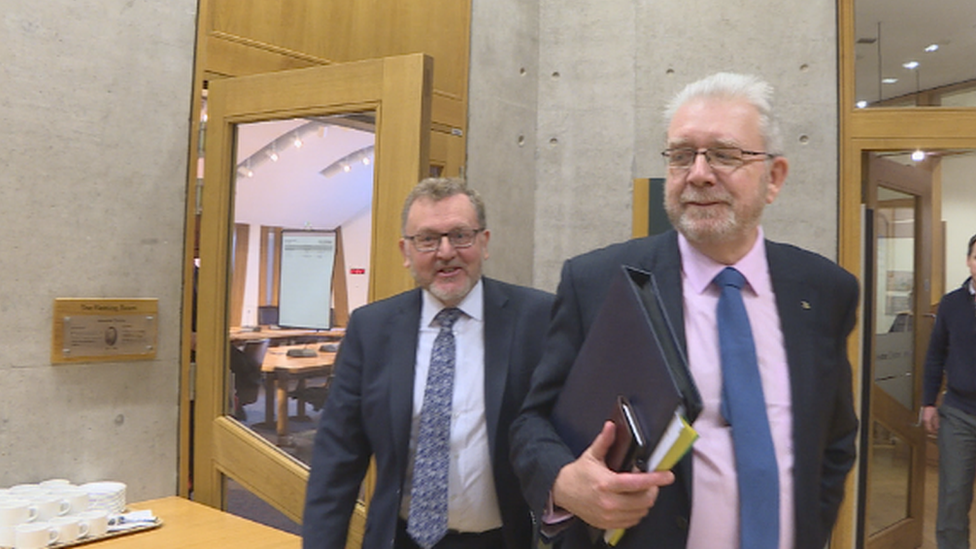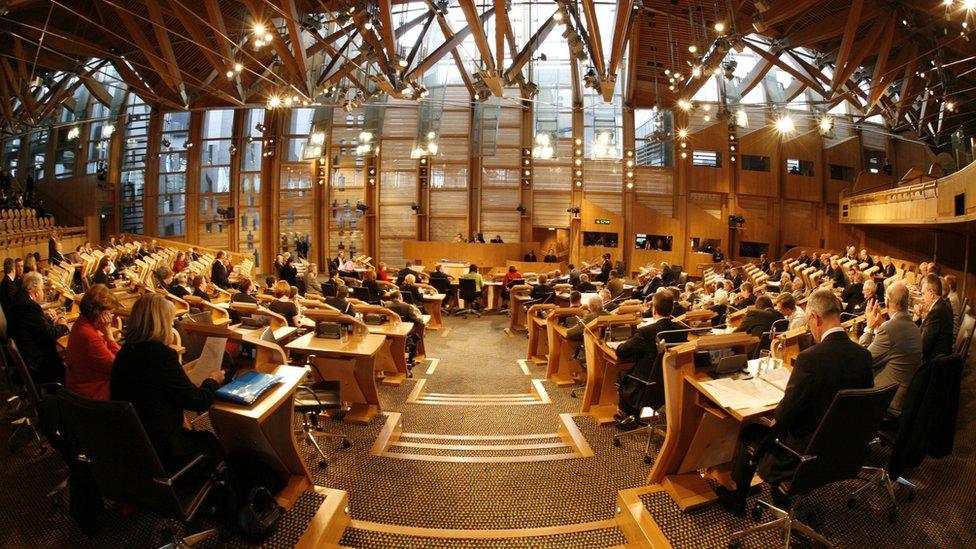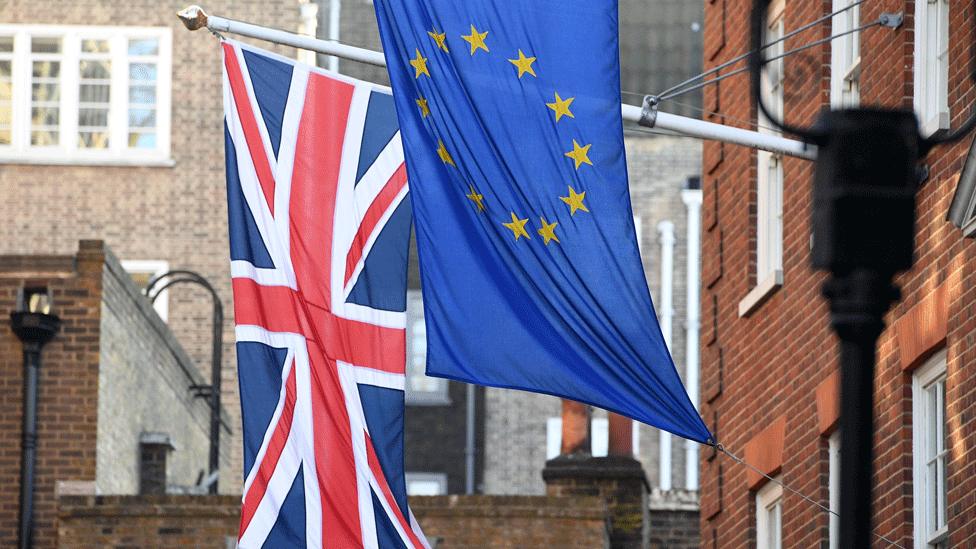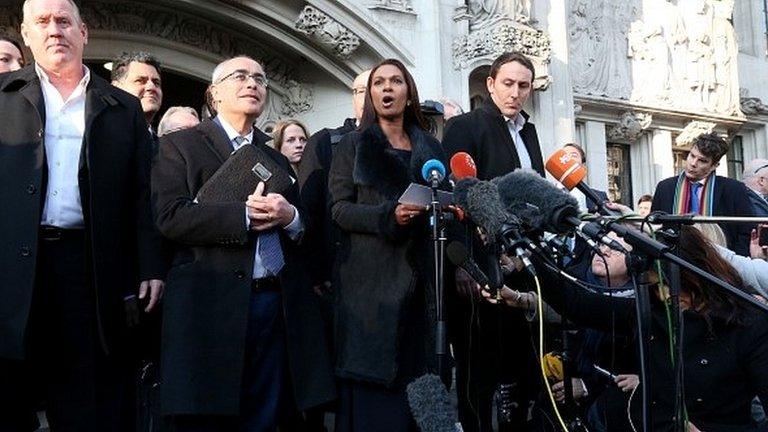Mundell: Holyrood to be consulted on Great Repeal Bill
- Published

Mr Mundell said the meeting was "constructive", but the Scottish government called it "pointless"
Holyrood's consent is likely to be needed for the Great Repeal Bill which unpicks EU laws from the UK, the Scottish Secretary has said.
David Mundell said consent was not needed for newly published legislation for triggering Article 50.
But he said there could be "significant implications" if Holyrood did not give the go-ahead to the repeal bill.
A spokesman said the Scottish government will press ahead seeking a consent motion on the Article 50 bill.
David Mundell was in Edinburgh for a meeting with the Scottish government's Brexit minister Mike Russell and Finance Secretary Derek Mackay.
They were meeting as the legislation giving the UK government the power to trigger Article 50 was published at Westminster, with the UK government aiming to move it through the Westminster process swiftly.
Mr Mundell said this bill was "entirely a reserved matter", but said he was working on the basis that the Great Repeal Bill would be subject to the legislative consent process.
The Great Repeal Bill would be a key factor in the Brexit process, by removing European laws from the UK statute book. Mr Russell warned after it was announced in October that MSPs may not give their consent for it.
'Very significant consequences'
Speaking following the meeting at Holyrood, Mr Mundell said: "The bill has not been published, so you can't be definitive, but given the Great Repeal Bill will both impact on the responsibilities of this parliament on and on the responsibilities of Scottish ministers, it's fair to anticipate that it would be the subject of a legislative consent process.
"I think there are really big issues that will be in the Great Repeal Bill, there will be issues around the powers for this parliament and issues around whether we have a hole in our law because the body of European law hasn't been adopted. So not agreeing to the Great Repeal Bill would have very significant consequences.
"My focus will be to work with the parliament here and the committees here and the Scottish Government to get that agreement."

Nicola Sturgeon said has MSPs will discuss and vote on Brexit, regardless of the Supreme Court ruling
The Supreme Court rejected arguments from the Scottish government that Holyrood should be consulted over Brexit, while ruling that MPs and peers should be given a vote.
The Scottish government argues that while the judges said there was not a legal case for consulting Holyrood, they had underlined a clear political one.
First Minister Nicola Sturgeon and Mr Russell have both said there is a "clear political obligation" on Westminster to consult devolved administrations over Brexit, given the judges acknowledged the impact it would have on devolved competencies.
Ms Sturgeon said she would attempt to give MSPs a say regardless of the court decision, and a spokesman reiterated this point in the wake of the bill being published at Westminster.
'Pointless' meeting
Presiding Officer Ken Macintosh will have to decide whether a legislative consent memorandum (LCM) on the Article 50 bill can be voted on at Holyrood.
A Scottish parliament spokeswoman said the decision on this would depend on the wording both of the bill and the LCM itself.
While Mr Mundell described Wednesday's meeting as "constructive", a Scottish government spokesman said it was "pointless". He said the Scottish Secretary had asked for the meeting to be about powers returning to the UK from Brussels after Brexit, but had provided "zero, zilch, nothing" on that topic.
Mr Russell added: "Given this meeting was requested by the Scotland Office, I was disappointed that they appear to have given no thought to [the Scottish government's Brexit] proposals, and made no offer on powers, despite asking for the meeting to discuss that very subject.
"There was no offer, no guarantee even that current devolved powers, presently exercised through EU membership, will be coming back to Scotland. There should be no UK power grab."
- Published26 January 2017

- Published25 January 2017

- Published24 January 2017
